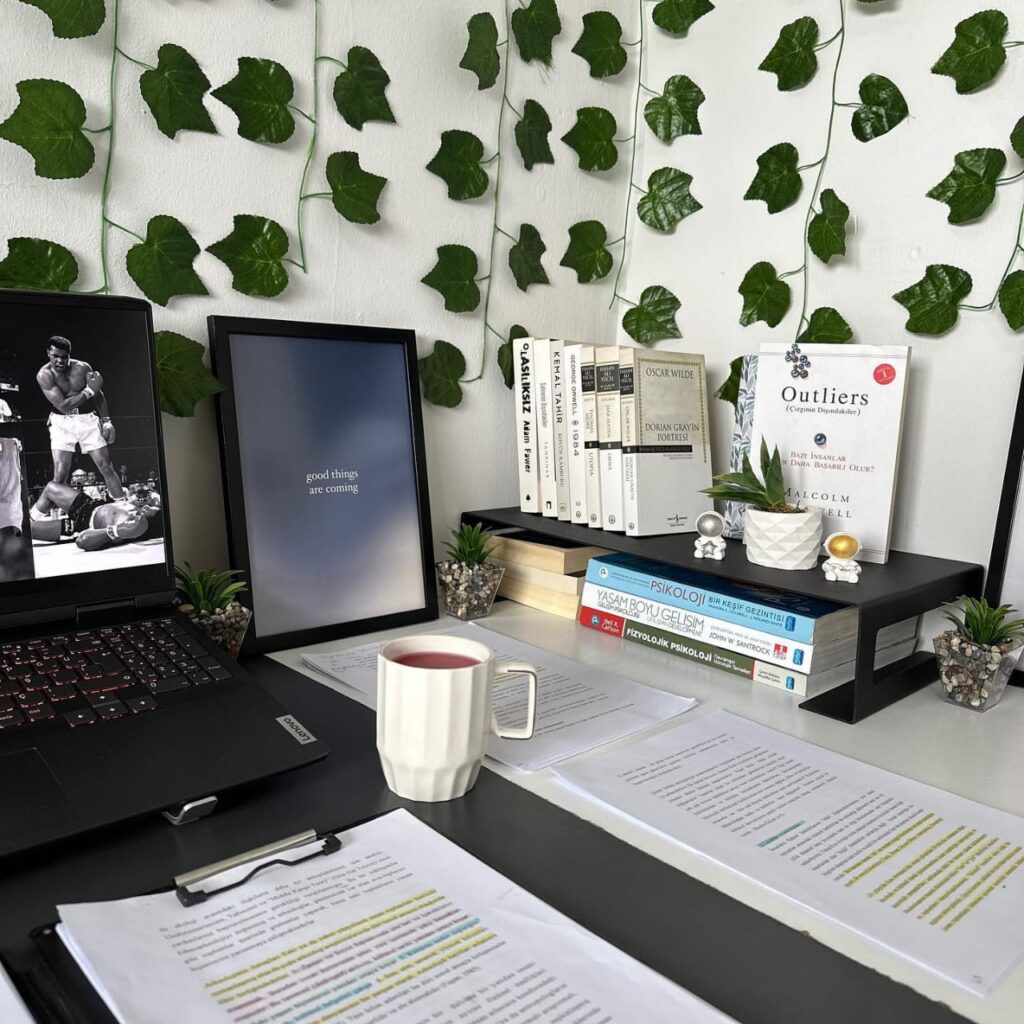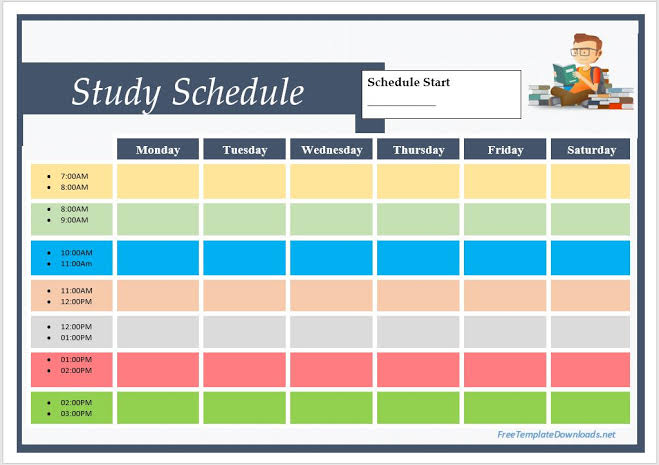Studying effectively can be challenging, especially with the myriad of distractions we face today. However, developing a strong focus is essential for academic success. Here are some tried-and-true strategies to help you concentrate and make the most of your study time.

1. Create a Study Schedule
Planning your study sessions in advance can help you manage your time efficiently. Allocate specific time slots for different subjects and stick to this schedule. This regularity helps train your mind to be ready to focus during those periods.

When creating your schedule, consider your peak productivity times. Some people study best early in the morning, while others might find late evenings more conducive. By identifying your most productive hours, you can schedule intensive study sessions during these times for maximum efficiency.
2. Find a Suitable Study Environment
Your study environment plays a crucial role in your ability to concentrate. Choose a quiet, well-lit place free from distractions. Ensure that your study space is organized and equipped with all the materials you need to avoid unnecessary interruptions.

Additionally, personalizing your study area with comfortable furniture and minimalistic decor can create a welcoming and motivating atmosphere. Remember to maintain good posture by using an ergonomic chair and desk setup, which can prevent physical discomfort and improve your focus over long periods.
3. Set Clear Goals
Before you start studying, set clear and achievable goals for each session. Whether it’s completing a chapter, solving a set of problems, or understanding a concept, having a specific target helps keep you motivated and focused. Break down larger tasks into smaller, manageable steps, and reward yourself after completing each one. This approach not only makes studying less overwhelming but also provides a sense of accomplishment and progress.
4. Use the Pomodoro Technique
The Pomodoro Technique involves studying for 25 minutes and then taking a 5-minute break. After four such sessions, take a longer break of 15-30 minutes. This method helps maintain high levels of focus by breaking your study time into manageable chunks. It also prevents mental fatigue and burnout, allowing you to sustain your concentration over extended periods. Customize the intervals based on your attention span; some people might find longer or shorter sessions more effective.
5. Eliminate Distractions
Identify what commonly distracts you and take steps to eliminate these distractions. Turn off notifications on your phone, use apps that block social media, and inform family or roommates about your study schedule to minimize interruptions.

If external noises are a problem, consider using noise-cancelling headphones or playing background music designed for concentration. Creating a distraction-free zone can significantly enhance your ability to stay focused.
6. Take Regular Breaks
Taking regular breaks is essential to maintain concentration and avoid burnout. Short, frequent breaks allow your brain to rest and recharge, making your study sessions more productive.

Use these breaks to engage in relaxing activities, such as stretching, taking a walk, or practicing deep-breathing exercises. These activities can refresh your mind and reduce stress, improving your overall study efficiency.
7. Stay Organized
Keep your notes and study materials organized. Use folders, labels, and digital tools to keep track of your assignments and study resources. An organized study space reduces stress and makes it easier to find what you need. Consider using color-coding systems for different subjects or topics, and regularly declutter your study area to maintain a clean and orderly environment. This organization extends to your digital files; ensure your computer folders are neatly arranged and easily accessible.
8. Practice Active Learning
Engage actively with the material by summarizing information in your own words, asking questions, and discussing topics with peers. Active learning techniques, such as teaching the material to someone else, can significantly enhance your understanding and retention. Additionally, using visual aids like mind maps, charts, and diagrams can help you grasp complex concepts more effectively. Engage in group study sessions to gain different perspectives and insights, which can deepen your comprehension of the subject matter.
9. Stay Hydrated and Eat Healthily
Your physical health impacts your ability to focus. Stay hydrated, eat balanced meals, and avoid excessive caffeine and sugary snacks that can cause energy crashes.

Incorporate brain-boosting foods, such as nuts, berries, and leafy greens, into your diet to support cognitive function. Maintain a regular eating schedule to keep your energy levels stable throughout the day, and avoid heavy meals that can make you feel sluggish.
10. Get Adequate Sleep
A well-rested mind is crucial for concentration and memory retention. Ensure you get 7-9 hours of sleep each night to stay alert and focused during your study sessions. Establish a consistent sleep routine by going to bed and waking up at the same time every day.

Create a relaxing bedtime ritual, such as reading a book or listening to calming music, to signal to your body that it’s time to unwind. Avoid screens before bed, as the blue light emitted by phones and computers can interfere with your sleep quality.
11. Use Technology Wisely
There are numerous apps and tools designed to enhance study efficiency. From digital flashcards to time management apps, leverage technology to support your study habits rather than distract you. Use apps like Quizlet for creating and reviewing flashcards, Forest for maintaining focus, and Google Calendar for organizing your study schedule.

Additionally, explore online resources such as educational videos, podcasts, and interactive simulations to supplement your learning. However, set boundaries on your screen time to prevent digital distractions.
12. Stay Positive and Motivated
Maintaining a positive attitude towards your studies can boost your focus. Set rewards for yourself after achieving study goals and remind yourself of your long-term objectives to stay motivated. Visualize your success and the benefits of your hard work to maintain a positive mindset.

Surround yourself with supportive peers and mentors who encourage your efforts and provide constructive feedback. Celebrate your achievements, no matter how small, to build confidence and maintain enthusiasm for your studies.
13. Practice Mindfulness and Meditation
Incorporating mindfulness and meditation into your daily routine can significantly improve your focus and reduce stress. Spend a few minutes each day practicing mindfulness techniques, such as deep breathing or body scanning, to enhance your awareness and concentration.

Meditation can help calm your mind, improve your emotional regulation, and increase your ability to stay present during study sessions. Over time, these practices can lead to improved mental clarity and sustained focus.
14. Exercise Regularly
Physical activity is not only beneficial for your body but also for your mind. Regular exercise increases blood flow to the brain, enhances cognitive function, and reduces stress.

Incorporate activities like jogging, cycling, yoga, or even a brisk walk into your daily routine to keep your body and mind in optimal condition. Exercise can also serve as a productive break between study sessions, helping you return to your work with renewed energy and focus.
Conclusion
Focusing on your studies requires a combination of effective strategies and a disciplined approach. By creating a conducive study environment, setting clear goals, and taking care of your physical and mental well-being, you can enhance your ability to concentrate and achieve academic success. Remember, consistency is key, and with practice, you can develop the focus needed to excel in your studies. Incorporate these strategies into your daily routine, stay committed to your goals, and watch your academic performance improve.

![Stree 2 [2024] Hindi download 720P 480P HDTS Stree 2 download in hd](https://honestmitra.com/wp-content/uploads/2024/08/WhatsApp-Image-2024-08-22-at-15.21.11-150x150.jpeg)








